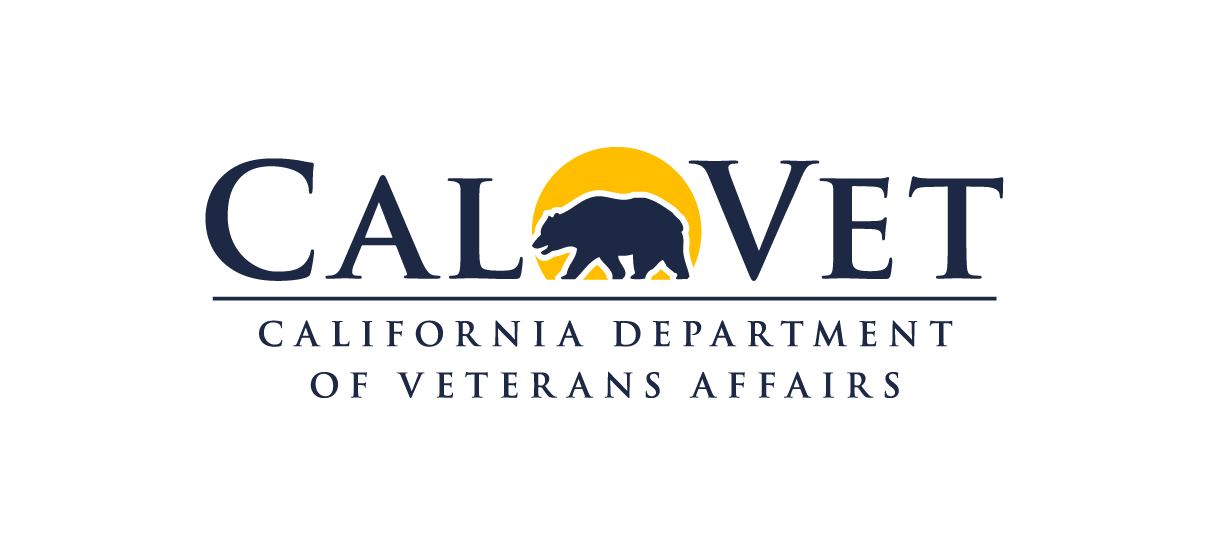
CalVet logo. (Photo: calvet.ca.gov)
California’s Two Veterans Affairs Entities: What’s the Difference?
To ensure and enhance the rights and benefits of California Veterans
By Chris Micheli, September 3, 2020 6:38 am
California has two veterans’ affairs-related entities: California Veterans Board and Department of Veterans Affairs. What’s the difference?
Department of Veterans Affairs
In Section 63 of the Military and Veterans Code, “there is in the state government a Department of Veterans Affairs.” Section 70 provides that the Department of Veterans Affairs succeeds to, and is vested with, the duties, powers, purposes, responsibilities, and jurisdiction of the Department of Military and Veterans’ Affairs, the Division of Veterans’ Welfare, the Veterans’ Welfare Board, the California Veterans’ Commission, the Division of Veterans’ Homes, the Board of Directors of the Veterans’ Home of California, and the Board of Directors of the Woman’s Relief Corps Home of California and of the officers and employees of that department.
In addition, the Secretary of Veterans Affairs is a member of the Governor’s cabinet. Pursuant to Section 74, the chief administrative officer of the Department of Veterans Affairs is the Secretary of Veterans Affairs who is a civil executive officer. The Secretary of Veterans Affairs must be a veteran. Section 75 provides that the Secretary is appointed by and serves at the pleasure of the Governor.
Section 79 requires an Undersecretary of Veterans Affairs and Section 79.1 specifies that there be within the department, and the secretary must appoint, a Deputy Secretary of Women Veterans Affairs who has responsibility over administration of women veterans’ affairs. In addition, pursuant to Section 79.2, the Governor must appoint a Deputy Secretary of Veterans Homes, to serve at the pleasure of the secretary, who is responsible for the administration of all sites of the California veterans’ homes.
According to the California Department of Veterans Affairs (CalVet), it works to serve California veterans and their families. With nearly 1.6 million veterans living in the State, CalVet strives to ensure that its veterans of every era and their families get the state and federal benefits and services they have earned and deserve as a result of selfless and honorable military service.
The Department’s mission is to serve and honor all California veterans by connecting them and their families with their earned benefits through education, advocacy, and direct services. Its vision is to provide innovative leadership in veteran advocacy and veteran services in California and set the national standard for connecting veterans and their families with the rights and benefits they have earned through their military service.
California Veterans Board
In Section 64 of the Military and Veterans Code, “there shall be a California Veterans Board.” Section 65 specifies that the Board has seven members who are appointed by the Governor and subject to confirmation by the State Senate. Section 66 requires all members of the board to be veterans. And, of these board members must be retired from the active or reserve forces of the U.S. military service.
Section 66.5 provides that every member of the board must be a member in good standing with a congressionally-chartered veteran service organization. One member must have substantial training, professional knowledge, or experience in the issues faced by female veterans. Pursuant to Section 72, the California Veterans Board must advise the Department and the Secretary on policies of the Department.
According to the California Veterans Board, it serves as an advocate for Veterans affairs identifying needs and working to ensure and enhance the rights and benefits of California Veterans and their dependents. The Board consists of seven members appointed by the Governor who are subject to State Senate confirmation. Any person deeming himself or herself a veteran and who applies for benefits may appeal any decision made by a division of the department to the Board. This pertains to state benefits only such as denial of a home loan, student waiver, or admission into a veteran’s home.
- Frequently Asked Questions about State Agency Ethics Training - April 26, 2024
- Frequently Asked Questions about When Elected Officials Take Office - April 25, 2024
- Frequently Asked Questions About Ethics Training for Local Agencies - April 24, 2024




